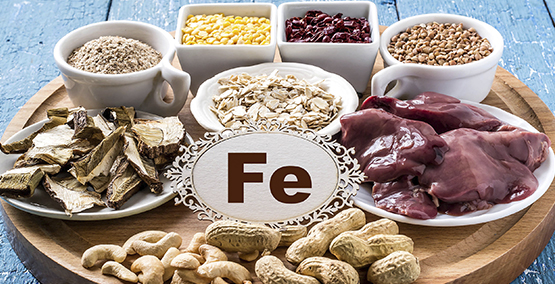
The Latest and greatest treatments for IBD: What to believe
What’s the best IBD medicine for me? Confusion on television and in your inbox....
See moresign up for our newsletter
SubscribeWhen most people think about the iron in their body, it reminds them about what they've heard about anemia–that's because low iron means that the red blood cells can't carry all the oxygen that needed by the rest of the body–but that's not all that iron does.
Iron Functions:
Crohnies and UCees Often Have Iron Deficiency
If you or your child has Crohn's disease or ulcerative colitis (a Crohnie or UCee), you are more likely to have low iron (iron deficiency).
Iron, like many other minerals, is absorbed in the small intestine, particularly, the upper portions. In Crohn's disease, the small intestine can be inflamed which can reduce absorption of many nutrients, including iron. In severe cases, parts of the small intestine may be removed in surgery which put a Crohnie at a greater risk for malabsorption.
Other reasons that IBD can have lower iron levels include decreased appetite (decreased intake), poor food selection, and blood loss along with diarrhea.
Factors Causing Iron Deficiency in IBD:
| Crohn's disease | Ulcerative colitis | |
| Inflammation / Malabsorption in the small intestine | x | |
| Surgery (resection) of parts of the small intestine | x | |
| Diarrhea with little time for absorption | x | x |
| Blood loss | x | x |
| Decreased appetite | x | x |
| Poor food selection | x | x |
| Pregnancy (with increased needs) | x | x |

This article, as well as all others, was reviewed and edited by a member of our Medical Advisory Board.
Subscribe Be the first to know